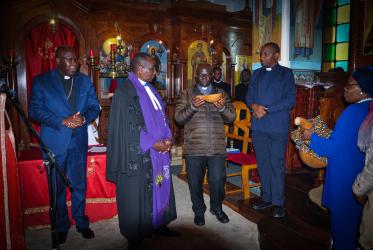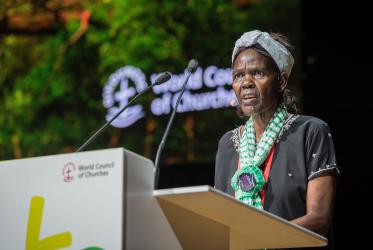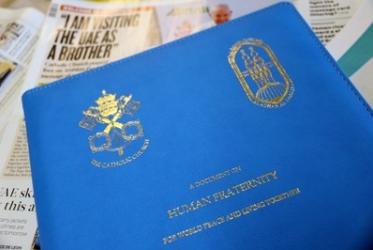Displaying 1 - 20 of 48
23 January 2024
Peace Pilgrim Agnes Abuom dies at 73
01 June 2023
Brazilian churches call for transformative racial justice
23 November 2020
Kenya mourns the late Prof. Samuel John Mbiti
08 October 2019
Interfaith Rainforest Initiative expands
12 February 2019
Compassion flow in Kenya after terrorist attack
18 January 2019
Fr Alexi - a peacemaker in Syria
21 December 2018
Romani people seek “lives of decency, dignity, and justice”
27 September 2018

















